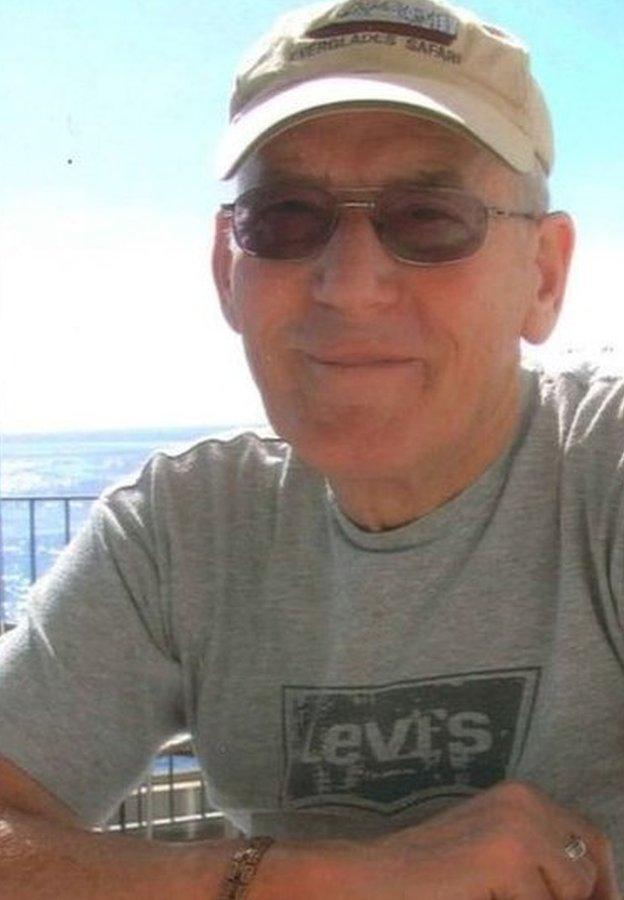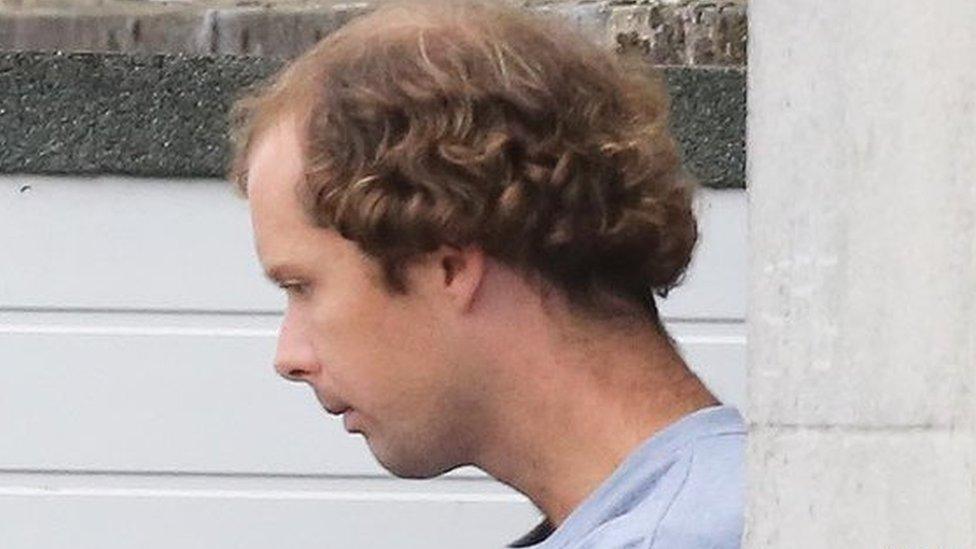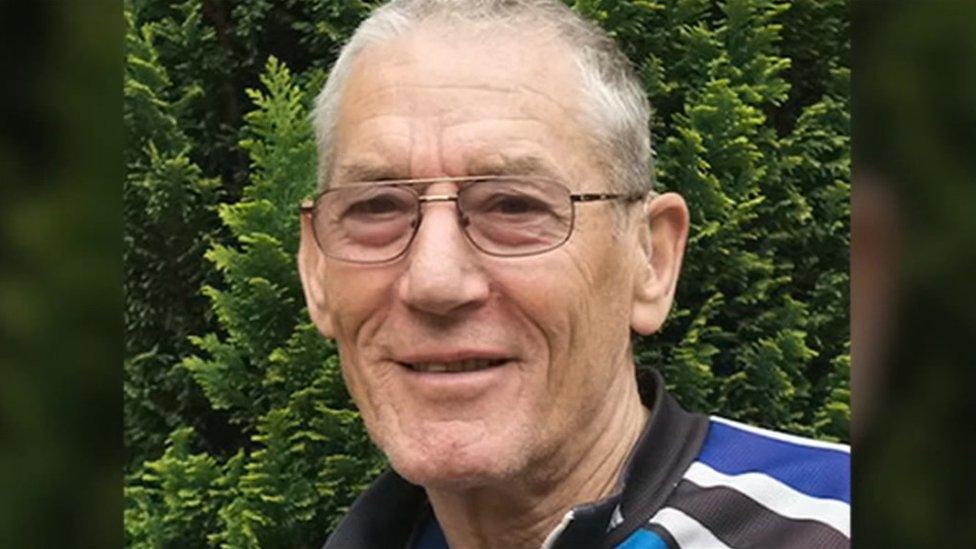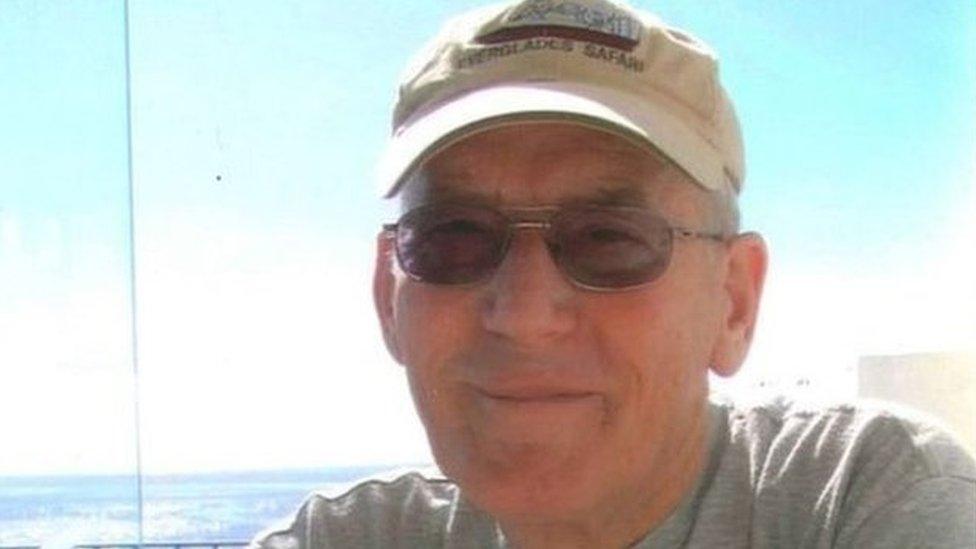Don Lock murder case: Killer 'wrongly diagnosed'
- Published

Don Lock, 79, died as a result of stab wounds
A man who stabbed a motorist 39 times after a crash was misdiagnosed with a form of autism, a court has been told.
Matthew Daley, 35, denies murder but admits attacking Donald Lock, 79, in Findon, near Worthing, last July, claiming diminished responsibility.
Lewes Crown Court heard that rather than having Asperger's syndrome he had an underlying paranoid schizophrenic illness that was undiagnosed for years.
Forensic psychiatrist Dr Roderick Ley made the assessment after the stabbing.
Mr Lock, a retired solicitor, was stabbed after crashing at about 16mph into the back of Mr Daley's car on the A24 in West Sussex on 16 July.
He was forced to brake suddenly after Mr Daley made an emergency stop.
The great-grandfather, who had recently been given the all-clear from prostate cancer, died at the scene.

Matthew Daley is charged with murder and possessing a knife in a public place
The trial has heard how Mr Daley, formerly of St Elmo Road, Worthing, had been suffering from mental health problems for 10 years, and his family had "pleaded" with experts to section him.
On Monday, Dr Ley told jurors: "It's clear that the diagnosis of Asperger's was wrong.
"He has an underlying paranoid schizophrenic illness that was undiagnosed for many, many years."
He said Mr Daley was not psychotic every moment of every day, and he would often "downplay" his symptoms.
However, Dr Ley agreed that he exhibited "narcissistic", "histrionic" and "self-centred" traits, adding that it was unlikely he would ever have complete resolution of his illness.
Another expert, consultant forensic psychiatrist Dr Philip Joseph, said he was satisfied on all the evidence he had seen that Mr Daley was not psychotic at the time of the killing.
'Nice guy'
Jurors also head from Mr Daley's father, who said his son had never been a violent person.
John Daley described him as a "nice guy" who was affectionate to his family and animals.
He said Mr Daley was "scrupulously honest in all his dealings with others, honest to a fault in that he finds it difficult to lie about things".
He told the court that he first became worried about his son's mental health when he reported hearing voices.
Mr Daley said he started a journal, partly to keep track of his son's treatment.
"The second reason for having the document was, as time went on, it was clear that Matthew's life expectations were draining away and I didn't want to be in my 80s and look back saying, 'What did I do'?"
The trial continues.
- Published5 May 2016

- Published4 May 2016

- Published3 May 2016

- Published11 April 2016
